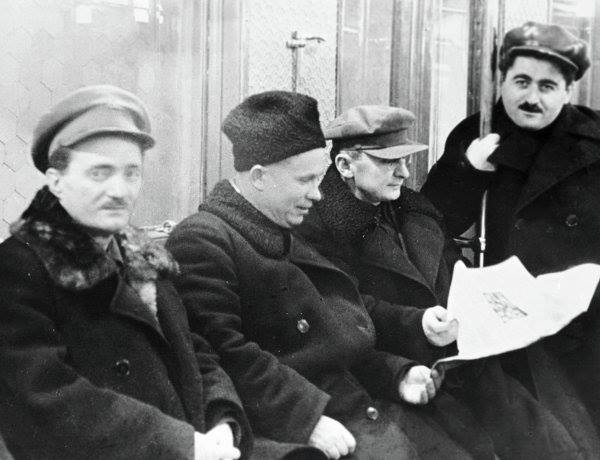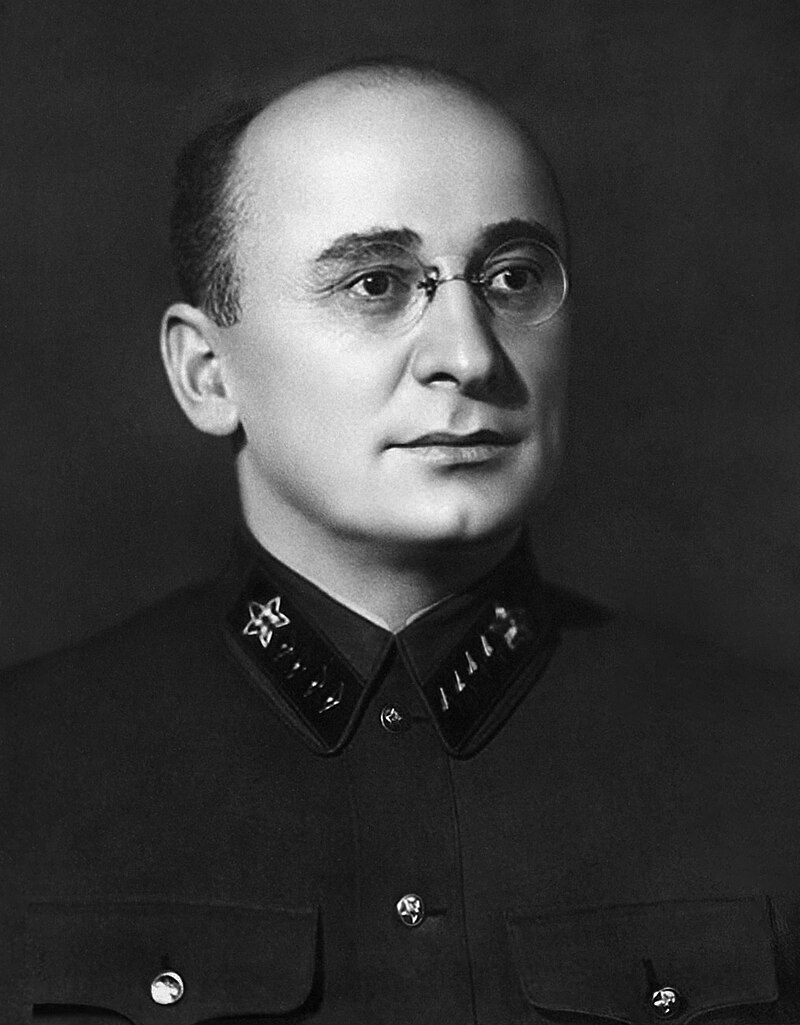Berii︠a︡, L. P. 1899-1953
Enlarge text Shrink text- LCN
- LCN: Beriia, L. P. (Lavrentii Pavlovich), 1899-1953
- צו דער פראגע וועגנ דער געשיכטע פונ די באלשעוויסטישע ארגאניזאציעס אינ טראנסקאווקאז, 1936:
- Record enhanced with data from Bibliography of the Hebrew Book database
Lavrentiy Pavlovich Beria (29 March [O.S. 17 March] 1899 – 23 December 1953) was a Soviet politician and one of the longest-serving and most influential of Joseph Stalin's secret police chiefs, serving as head of the People's Commissariat for Internal Affairs (NKVD) from 1938 to 1946, during the country's involvement in the Second World War. An ethnic Georgian, Beria enlisted in the Cheka in 1920, and quickly rose through its ranks. He transferred to Communist Party work in the Caucasus in the 1930s, and in 1938 was appointed head of the NKVD by Stalin. His ascent marked the end of the Stalinist Great Purge carried out by previous chief Nikolai Yezhov, whom Beria purged. After the Soviet invasion of Poland in 1939, Beria organized the Katyn massacre of 22,000 Polish officers and intelligentsia, and after the occupation of the Baltic states and parts of Romania in 1940, he oversaw the deportations of hundreds of thousands of Poles, Balts, and Romanians to remote areas or Gulag camps. In 1940, Beria began a new purge of the Red Army. After the Axis invasion of the Soviet Union in June 1941, he was appointed to the State Defense Committee, overseeing security. Beria expanded the system of forced labour, mobilizing millions of Gulag prisoners into wartime production. He also was in charge of NKVD units responsible for barrier and partisan intelligence and sabotage operations on the Eastern Front. In 1943–44, Beria oversaw the mass deportations of millions of ethnic minorities from the Caucasus, actions which have been described by many scholars as ethnic cleansing or genocide. Beria was also responsible for supervising secret Gulag detention facilities for scientists and engineers, known as sharashkas. From 1945, he personally oversaw the Soviet atomic bomb project, which Stalin gave absolute priority; the project's first nuclear device was completed in 1949. After the war, Beria was made a Marshal of the Soviet Union in 1945, and promoted to a full member of the Politburo in 1946. After Stalin's death in March 1953, Beria became head of the Ministry of Internal Affairs and a First Deputy Chairman of the Council of Ministers, and formed a troika with Georgy Malenkov and Vyacheslav Molotov which briefly led the country in Stalin's place. In June 1953, a coup d'état by Nikita Khrushchev, with the support of other members of the leadership and Marshal Georgy Zhukov, removed Beria from power. He was arrested, tried for treason and other offences, and executed in December.
Read more on Wikipedia >
 Personality
Personality









